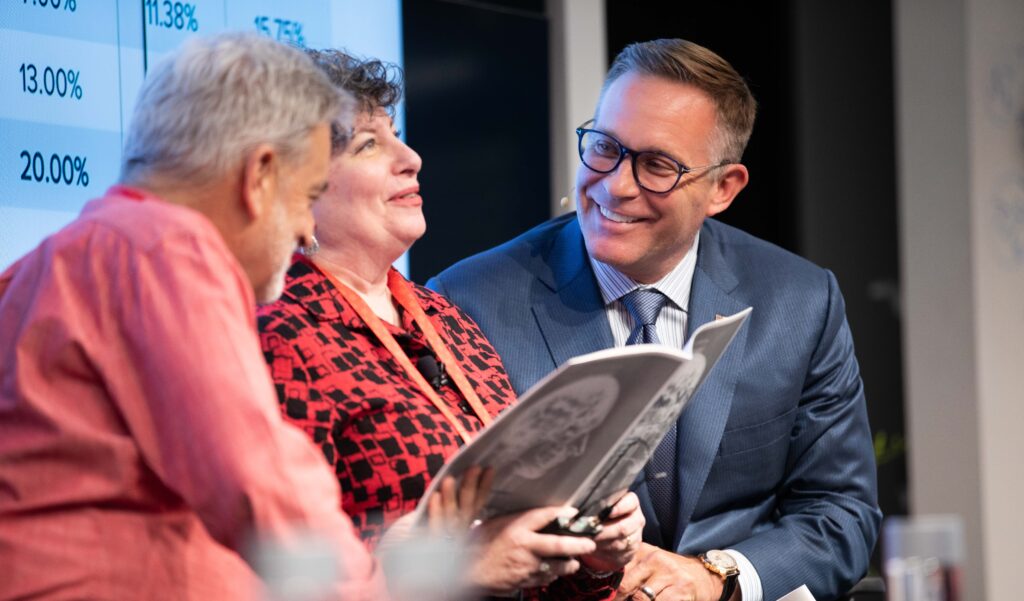
Whether innate or learned, biases can become highly destructive. Though we can’t fully eliminate bias from our worldview, we can learn to recognize and correct negative thought patterns that can hinder our relationships and can trap us into patterns and mindsets that can impede growth.
When it comes to investing, our biases can get in the way of smart decision-making. The market drops, and we may scramble to sell. It makes sense. In moments of uncertainty, we often fall back on what’s comforting and familiar, not necessarily what may be best for our long-term success.
Over the past six months, a mix of factors, including high inflation, rising interest rates, supply-chain shortages, and the war in Ukraine, has contributed to significant market volatility. In this period of prolonged uncertainty, investors would be wise to acquaint themselves with some of the most common investing biases—because to solve a problem, you must first recognize it.
Here are three investing biases to recognize and challenge:
Herding bias: Herding may be great for sheep, but likely not for investors. With herding bias, investors do what’s popular—selling when the market goes down—because the thinking, though often flawed, is that most people are doing the right thing. As humans, we have an innate desire to fit in and do what our friends are doing. This is especially true in times of crisis, so, when prices drop, investors may panic and have a strong need to behave like everyone they see around them. Though herding bias is especially evident in a down market, it can also factor into other investment decisions. “Over an 11-year bull market, we saw investors load up on large tech stock,” said Mark Matson. “These were companies that they knew and used. They saw other people, including big investors, buying into these stocks. As a result, some investors overallocated and eventually lost because they weren’t considering that these stocks might not go up forever; they overlooked the importance of diversification.”
Recency bias: Human memory can be flawed. Over time, it can become degraded. We tend to place greater weight behind more recent events rather than hold a historical outlook. When the market is up five years in a row, we often forget that markets can—and do—go down, and vice versa. From the October 2007 market high to its low of March 2009, the S&P dropped 51.9%, but people refused to invest, despite the bargain prices, because the market drop was still fresh in their memories.1 Today, people may be scared to invest due to a multitude of factors – the war in Ukraine being a big one. Historically though, markets rise after geopolitical disasters, said Mark Matson, Founder and CEO Of Matson Money. After Hitler invaded Poland in 1939, the DOW increased 10%, from 1939 until the end of the war in 1945, the DOW saw increases of 50% – more than 7% per year.2 Long-term investors need to look further back than the last week when they consider how free markets help build wealth over a lifetime.
Confirmation bias: When we seek out sources that reinforce our worldview, we are falling prey to confirmation bias. Unfortunately, many of us are guilty of this, whether it’s the news sources we consume or how we construct our investment portfolios. Investors who are bullish on bitcoin, for example, may refuse to change their view of the cryptocurrency no matter how low its valuation because they are fans of celebrities promoting it. Or they want to remain convinced it will generate lofty returns as they were one of the first believers in its potential. It’s important to seek out other people and sources that challenge us—both as investors and as citizens.
Recognizing that most of us approach investing with various biases is just the first step. To actively avoid giving into these instincts, you can move away from emotion and focus on the fundamentals, trusting in academically sound, Nobel Prize-winning academic investing principles.
Investing is inherently emotional, stirring up primordial instincts that were helpful to early human beings in fighting off predators, but not so great for investors planning for their future. Advisors can help investors stay on a positive course by working with them to identify a purpose that is greater than money—whether starting or growing a business, devoting more time and resources to causes they care deeply about, or leaving a legacy to their loved ones.
By focusing on both fundamental investment philosophies and long-term goals, investors can fight back against destructive biases and stay on course for success, whether markets are up or down.
Disclosures
This presentation is not to be considered investment advice and is not to be relied upon as the basis for entering into any transaction or advisory relationship or making any investment decision. All investments involve the risk of loss, including the loss of principal. The presentation includes data, graphs, charts or other material reflecting the performance of a security, an index, an investment vehicle, a composite or other instrument over time (“Performance Material”). Past performance, and any performance reflected in Performance Material, is not an indication of future results.
Investors cannot invest in a market index directly, and the performance of an index does not represent any actual transactions. The performance of an index does not include the deduction of various fees and expenses which would lower returns. Advisory fees charged to Matson Money clients, whether directly or indirectly through a mutual fund, are described in Matson Money’s Form ADV Part 2A and Form CRS, available at www.matsonmoney.com
(1) Kolakowski, Mark. A Brief History of U.S. Bear Markets. Investopedia. June 16, 2022. Retrieved 24 June 2022 from https://www.investopedia.com/a-history-of-bear-markets-4582652.
(2) Morris, Chris. Nasdaq nears a bear market, but here’s how stocks have historically been affected. Fortune. February 24, 2022. Retrieved 24 June 2022 from https://fortune.com/2022/02/24/russia-ukraine-stocks-nasdaq-bear-market-dow-jones-historical-reaction-war/.




